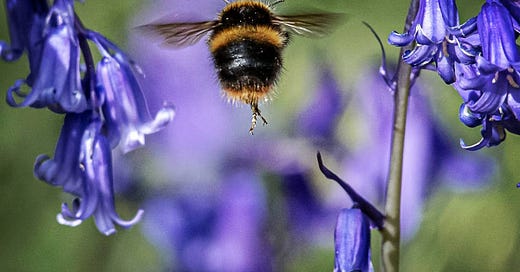No Mow May - The Wild Way!
LettsSafari is a big supporter of 'No Mow May' - this is why you should be too!
‘No Mow May’ was introduced in the UK in 2019 by botanical charity Plantlife. LettsSafari is a big supporter of the campaign. Our founders, Kara and Philip Letts, started to practise what has become known as ‘No Mow May’ in 2007, at a project in the US.
Keep reading with a 7-day free trial
Subscribe to LettsSafari+ to keep reading this post and get 7 days of free access to the full post archives.




